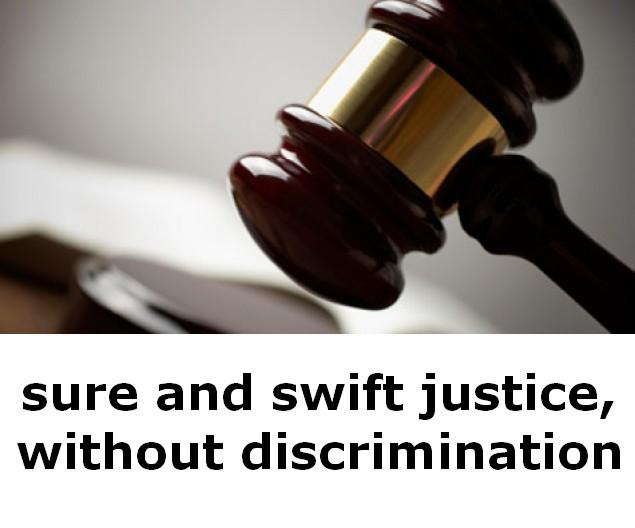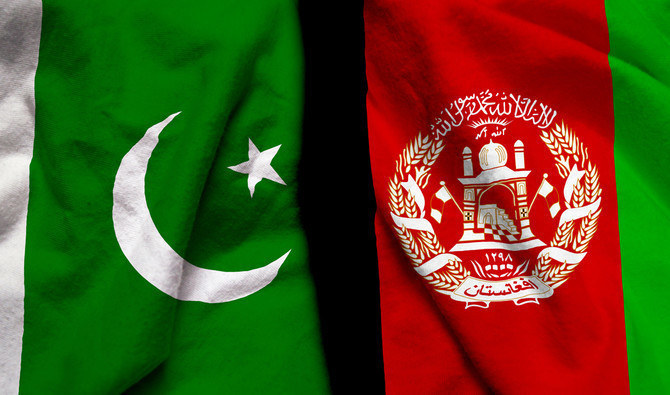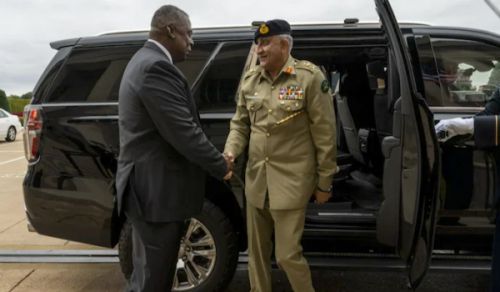Policy for a Judiciary that secure sure and swift justice, without discrimination

Hizb ut-Tahrir releases the Khilafah judiciary policy
Policy for a Judiciary that secure sure and swift justice, without discrimination

Hizb ut-tahrir / Wilayah Pakistan has issued a Publicized Policy Position (PPP) regarding ensuring a judiciary that is free from corruption and discrimination, secures the rights of the people, and is strong to hold the rulers to account.
The most profound and detailed jurisprudence in human history is that of Islam. From the time of RasulAllah صلى الله عليه و سلم Islam is characterized by its swift and fair justice. However, settling the disputes, accounting the rulers and securing the rights of the people is now in an appalling state in the Muslim World since the abolition of the Shariah which was implemented through the Khilafah.
The corner stone of Islam’s judiciary was fair, swift and sure justice. Moreover, Shariah was a standard for world civilization for thirteen centuries, inspiring the Western nations to revise their legal and ruling frameworks, for example Shariah influenced France’s Napoleonic Code, Britain’s Magna Carta and the US Constitution.
Unlike Democracy, in Islam, it is Allah سبحانه و تعالى Who has revealed the laws regarding the crime, its testimonial evidence and punishment. Allah سبحانه و تعالى said, أَلَا يَعْلَمُ مَنْ خَلَقَ وَهُوَ اللَّطِيفُ الْخَبِيرُ “Should not He Who has created know And He is the Most Kind and Courteous, All-Aware.)” [Surah al-Mulk 67:14]. So in Islam, as it is the will of Allah that is imposed through the judiciary there is no favouritism or privilege based on power or status or any other matter. The rights of the weak are restored to them, regardless of their race, status, gender, school of thought or religion. There is no immunity for the ruler in his violation of Islam and any ruler, be it the Khaleefah or a Wali.
Not only does Islam prevent might being right, it also secures swift justice. Uniquely Islam has no appeal system, with endless circuits in courts of various levels. For once the rule of Allah has been established in a matter, the case is concluded. The only situation of annulment is if the judgement contradicts that which Allah has revealed or it was clear that he contradicted the reality of the case.
Regarding punishment, Islam has stipulated exemplary punishment that act as a deterrent to others from committing crime, whereas the Western punishments have led to ever increasing crime, as well as huge prison populations.
Note: To see the complete policy and relevant articles of the constitution for the Khilafah state, please go to this web link:
http://htmediapak.page.tl/policy-matters.htm
Media Office of Hizb ut-Tahrir in Pakistan
حزب التحریرنے خلافت کے عدالتی پالیسی کا اعلان کردیا
یقینی،بروقت اور بغیر کسی امتیاز کے انصاف فراہم کرنے کے لیے عدالتی پالیسی
حزب التحریر ولایہ پاکستان نے عدالتی پالیسی کے حوالے سے مندرجہ ذیل پالیسی دستاویزجاری کی ہے۔یہ پالیسی ایسے عدالتی نظام کو یقینی بنائے گی جو بدعنوانی اورامتیازی سلوک سے پاک ہو، لوگوں کے حقوق کی فراہمی کو یقینی بنائے اور حکمرانوں کے احتساب میں انتہائی سخت ہو۔
اسلام کا عدالتی نظام انسانی تاریخ کا سب سے سے زیادہ تفصیلی اور گہری سوچ پر مبنی نظام ہے۔ رسول اللہ صلى الله عليه و سلم کے وقت سے اسلام بروقت اور کسی بھی امتیاز سے مبرا انصاف فراہم کرنےکے حوالے سے پہچانا جاتا ہے۔ لیکن خلافت کے خاتمے اور شریعت کے نفاذ کی منسوخی کے بعد سے لوگوں کےدرمیان اختلافات اور جھگڑوں کےتصفیے، حکمرانوں کے احتساب اور لوگوں کے حقوق کی فراہمی کے معاملات انتہائی دگرگوں صورتحال اختیار کرچکے ہیں۔
بروقت، بلامتیاز اور شفاف انصاف کی فراہمی اسلامی کے عدالتی نظام کی پہچان ہے۔ اس کے علاوہ تیرہ سو سالوں تک شریعت دنیا بھر کی تہذیبوں کے لیے ایک راہنما تھی جس نے مغربی اقوام کو اپنے قانونی اور حکمرانی کے اصول و ضوابط میں تبدیلی لانے پر مجبور کیا، مثلاًفرانس کا نیپولیونک کوڈ، برطانیہ کا میگنا کارٹا اور امریکی آئین۔
جمہوریت کے برخلاف اسلام میں یہ اللہ سبحانہ و تعالی ہی ہے جو جرم، اس کو ثابت کرنے کے لیے درکار ثبوت اور سزا سے متعلق قوانین سے انسانیت کو آگاہ کرتا ہے۔ اللہ تعالی فرماتا ہے:أَلَا يَعْلَمُ مَنْ خَلَقَ وَهُوَ اللَّطِيفُ الْخَبِيرُ “کیا وہی نہ جانے جس نے پیدا کیا؟ پھر وہ باریک بین اور باخبر بھی ہو”(الملک:14)۔ لہٰذا اسلام میں طاقت، رتبے یا کسی بھی اور وجہ کی بنیاد پر کوئی امتیازی قوانین نہیں ہوتے کیونکہ یہ قوانین اللہ سبحانہ و تعالی کی جانب سے نازل کیے گئے ہیں۔ کمزور کے حقوق کا تحفظ کیا جاتا ہے اس بات سے قطع نظر کہ اس کا تعلق کس نسل، رتبے، جنس، مکتبہ فکر یا مذہب سے ہے۔ اسلام میں کسی حکمران کو اسلام کے احکامات سے استثناء حاصل نہیں ہوتا چاہے وہ خلیفہ ہو یا والی (گورنر)۔
اسلام نہ صرف طاقتور کو ظلم سے روکتا ہے بلکہ بروقت انصاف کی فراہمی کو بھی یقینی بناتا ہے۔ اسلام کا عدالتی نظام ایک منفرد نظام ہے جس میں اپیل کی کوئی گنجائش نہیں ہوتی اور نہ ہی مختلف درجوں کی عدالتیں ہوتی ہیں کہ جن کی وجہ سے آج لوگ ایک گرداب میں پھنس جاتے ہیں۔ جب ایک بار ایک مقدمے میں اللہ کا حکم ثابت ہوجاتا ہے تو مقدمہ ختم ہوجاتا ہے۔ صرف اُس صورت میں مقدمہ دوبارہ کھولا جاسکتا ہے کہ اگر فیصلہ اللہ کے حکم کے خلاف ہو یا مقدمے کی حقیقت کو نظر انداز کردیا گیا ہو۔
جہاں تک سزاؤں کا تعلق ہے تواسلام نے ایسی سزائیں تجویز کی ہیں جو مجرموں کو جرم کرنے سے باز رکھتی ہیں جبکہ مغربی سزائیں جرائم میں مسلسل اضافے کا باعث بنتی ہیں جس کے نتیجے میں جیلوں کی تعداد بڑھتی جارہی ہے۔
اس پالیسی اوراس سے متعلق ریاست خلافت کے دستور کی دفعات کے تفصیلی دلائل جاننے کے لیے اس ویب سائٹ لنک کو دیکھیے۔
http://htmediapak.page.tl/policy-matters.htm
پاکستان میں حزب التحریر کا میڈیا آفس





